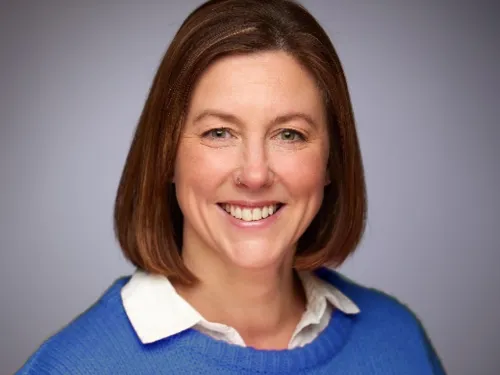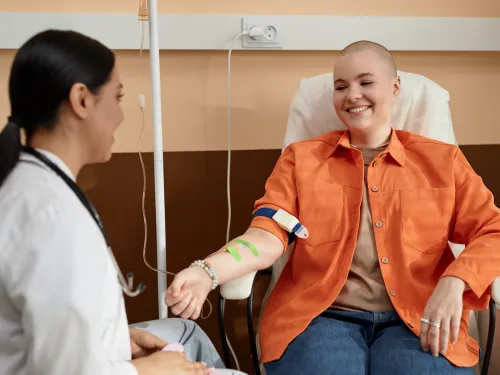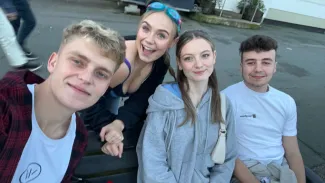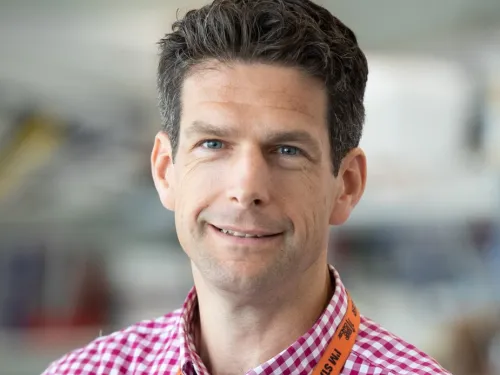UK childhood cancer experts come together for CCLG Annual Conference
Children’s Cancer and Leukaemia Group (CCLG) hosts its Annual Conference next week (April 22-23), bringing together experts from across the childhood cancer community.
Children’s Cancer and Leukaemia Group (CCLG) hosts its Annual Conference next week (April 22-23), bringing together experts from across the childhood cancer community.

Jo Stark tells us about young people's cancer care in a special Teenage and Young Adult Cancer Awareness Month webinar.

It can be difficult to navigate medical care as a young person. Learning how to ask questions and get answers takes a bit of experience and confidence. Here are some of the top tips to help.
Yami Moloteni was diagnosed with Hodgkin lymphoma in July 2021, when aged 18. She tells us about her cancer diagnosis and treatment and its impact on her, and offers advice to both professionals and other young cancer patients to help empower young people around healthcare.
Richard Storry was diagnosed with Hodgkin lymphoma in November 2010, aged 17. Here he talks about how this impacted him, some of the specific challenges a TYA cancer patient faces and offers advice to others.
Dr Morven Brown is a health psychologist and childhood cancer researcher at Newcastle University. Here, she tells us about being diagnosed with cancer as a 23-year-old, and how her own experiences have influenced her work and interests.

James Laiolo, pictured left, was diagnosed with Burkitt lymphoma at age 21 and is using social media to empower other young people in healthcare.
This April marks the second Teenage and Young Adult Cancer Awareness Month, an opportunity for charities and the young people we support to come together and raise awareness of the unique challenges facing this age group when faced with the three words that change their lives: “you have cancer".

Hear from Professor Matthew Murray about Wilms tumour and improving kidney cancer care.